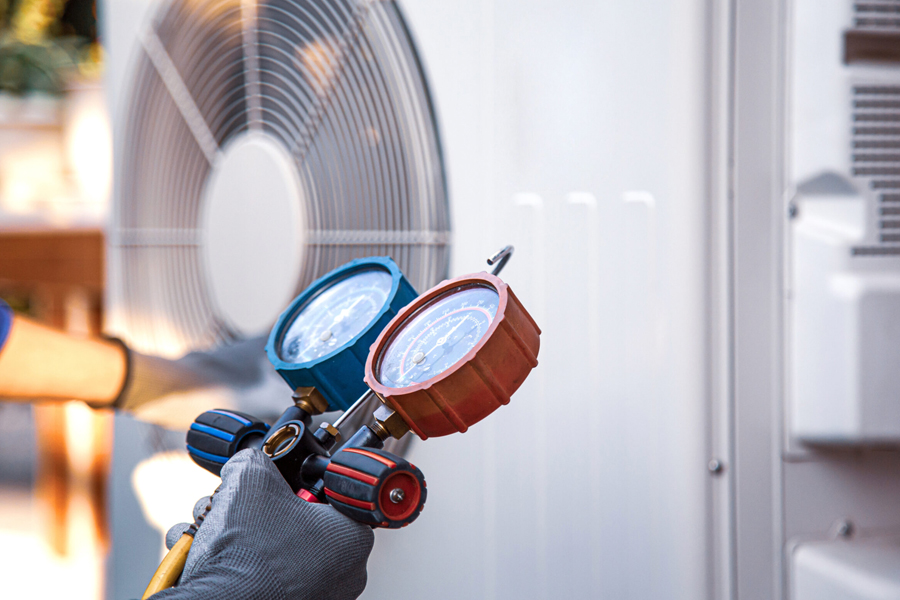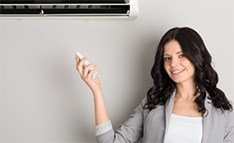
Image Source: www.novakheating.com
When it comes to heating and cooling our homes, traditional HVAC systems with ductwork have long been the norm. However, advancements in technology have introduced an innovative alternative—ductless heating and cooling systems. These systems offer a host of benefits, from improved energy efficiency to enhanced comfort and flexibility. In this blog, we’ll delve into the features and advantages of ductless heating and cooling systems, highlighting why they’re becoming an increasingly popular choice for homeowners.
Efficient Heating and Cooling
Ductless heating and cooling systems, also known as mini-split systems, operate on the principle of transferring heat between indoor and outdoor units without the need for ductwork. This innovative design eliminates the energy losses associated with ducts, resulting in more efficient heating and cooling. With individual air handlers installed in each room or zone, ductless systems allow for precise temperature control, ensuring optimal comfort while minimizing energy waste.
 One of the standout features of ductless heating and cooling systems is their installation flexibility. Unlike traditional HVAC systems that require extensive ductwork and space-consuming equipment, ductless systems consist of compact indoor and outdoor units connected by a small refrigerant line. This streamlined design makes ductless systems ideal for homes where traditional ductwork is impractical or unavailable, as well as for ductless heating and cooling systems. Additionally, the flexibility of ductless systems allows for easy customization to accommodate the unique layout and heating and cooling needs of each room or area.
One of the standout features of ductless heating and cooling systems is their installation flexibility. Unlike traditional HVAC systems that require extensive ductwork and space-consuming equipment, ductless systems consist of compact indoor and outdoor units connected by a small refrigerant line. This streamlined design makes ductless systems ideal for homes where traditional ductwork is impractical or unavailable, as well as for ductless heating and cooling systems. Additionally, the flexibility of ductless systems allows for easy customization to accommodate the unique layout and heating and cooling needs of each room or area.
Ductless heating and cooling systems offer zoned heating and cooling capabilities, allowing homeowners to create personalized comfort zones throughout their homes. With individual air handlers installed in each zone, occupants can adjust the temperature settings to their liking, providing customized comfort for different areas of the house, as well as ductless heating and cooling systems. Zoned heating and cooling not only enhance comfort but also contribute to energy savings by reducing the need to heat or cool unoccupied rooms.
Improved Indoor Air Quality
Traditional HVAC systems with ductwork are susceptible to dust, dirt, and allergen buildup, which can compromise indoor air quality, Ductless heating and cooling systems. Ductless heating and cooling systems, on the other hand, feature multi-stage filtration systems that effectively remove airborne particles, pollutants, and allergens from the air. This results in cleaner, healthier indoor air, making ductless systems an excellent choice for households with allergy or asthma sufferers.
Ductless heating and cooling systems are known for their whisper-quiet operation, thanks to advanced compressor technology and insulated air handlers, Ductless heating and cooling systems. Unlike traditional HVAC systems that can be noisy and disruptive, ductless systems operate quietly in the background, providing consistent comfort without the distraction of loud motor noises or air blowing through ducts. This makes ductless systems an ideal choice for bedrooms, home offices, and other quiet spaces where peace and tranquility are valued.
By eliminating the energy losses associated with ductwork and providing zoned heating and cooling capabilities, ductless systems offer significant energy savings compared to traditional HVAC systems, Ductless heating and cooling systems. The precise temperature control and efficient operation of ductless systems help reduce energy consumption, leading to lower utility bills and reduced environmental impact, further validating their energy efficiency and environmental sustainability.

